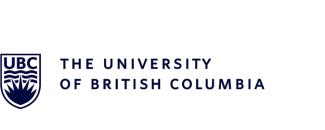Physical and Behavioral Integrative Therapies for People with Chronic Spinal Pain | Seminar by Dr. Nicholas Karayannis Nov 27
November 27, 2018, 10:00 am to 10:00 am
Nicholas Vasilis Karayannis, MPT, PhD
Postdoctoral Research Fellow in Interdisciplinary Pain Medicine
Musculoskeletal Pain Physiotherapist
Stanford Medicine Pain Management Center
Dr. Nicholas Karayannis (Pronounced KA-ruh-YAH-nees) is a postdoctoral research fellow in Interdisciplinary Pain Medicine at
Stanford University School of Medicine. Nicholas is also a Senior Physical Therapist within the Stanford Pain Management Center and Orthopaedic and Sports Medicine Clinic. He has practiced within the outpatient orthopaedic physical therapy setting for over 18 years. His mission as a pain specialist physiotherapist and clinical scientist is to further the practice and integration of mindfulness, both in the lives of individuals living with chronic musculoskeletal pain and in society through health care and research. Nicholas’s career goal is to better understand the processes and mechanisms of mindfulness-based interventions (MBIs) for people with chronic musculoskeletal pain through the behavioral investigation of meditation, motivation, and movement theory-informed practice.
Educational Background: Nicholas completed his Postdoctoral Fellowship within the Systems Neuroscience and Pain Laboratory at Stanford in 2017. Before receiving his Ph.D. degree in Physiotherapy from The University of Queensland (Australia) in 2013, Nicholas trained as a fellow in orthopaedic manual therapy in the USA and Canada (North American Institute of Orthopaedic Manual Physical Therapy). He graduated with a Master’s in Physical Therapy degree in 2000 from Ohio University, and a Bachelor of Science degree in Biological Sciences in 1995 from the same institution.
Certifications: Nicholas is a Fellow of the American Academy of Orthopaedic Manual Physical Therapists, board certified as an Orthopaedic Clinical Specialist, a Certified Yoga and Tai Chi Teacher, a Leader in the Stanford Chronic Pain Self-Management Program, and a Qualified Mindfulness-Based Stress Reduction (MBSR) teacher through the University of Massachusetts School of Medicine, Center for Mindfulness in Medicine, Healthcare, and Society.
Specialties and Interests: Nicholas’s research aims to improve the health status, beliefs, and behaviors of people suffering from persistent spinal pain through innovative refinement of clinical decision-making, and participatory rehabilitation. His research follows a threefold path: developing a better awareness of how posture, movement, and physical function adapts to a persistent pain state; making wiser decisions in choosing a targeted treatment approach; and in further refining meditative movement, and participatory-based therapies. Fundamentally, Nicholas is interested in reducing the suffering associated with pain and promoting mindfulness of the body. His work is clinically motivated and focuses on developing a better understanding of which person will respond to one type of mind-body therapy over another—in addition to understanding and refining the content and delivery of these meditative and movementbased forms of care. Nicholas’s primary role at the Stanford Pain Management Center is to collaborate with the interdisciplinary team of physicians, psychologists and nurses to formulate and implement comprehensive treatment plans for our patients, and provide people living with persistent pain with education and tools to improve their knowledge about pain - and what therapeutic and mindful movement can do to assist with improving movement quality, restoring function, enhancing self-care, and reducing pain-related fear and distress.
Personal Background: Nicholas enjoys traveling abroad, hiking, backpacking, Nordic skiing, and cycling with his wife, Ann. Other activities he enjoys include playing squash, Aussie Rules football, swimming, fly-fishing, yoga, and Tai Chi, reading fiction, watching independent films, listening to jazz and Americana, meditating, gardening and cooking, riding his vintage motorcycle, and playing with their beloved Siamese cat, Mai. He was born and raised in Ohio within a Greek-immigrant family and has lived in South Africa, the Pacific Northwest, New England, the Mountain West, and Australia before locating to the Bay area in 2012.
Stanford Website: http://med.stanford.edu/pain/patientresources/physicaltherapy/nicholas-…
Research Gate: https://www.researchgate.net/profile/Nicholas_Karayannis
LinkedIn: https://www.linkedin.com/in/nicholas-v-karayannis/
Twitter: @DrNickVK

